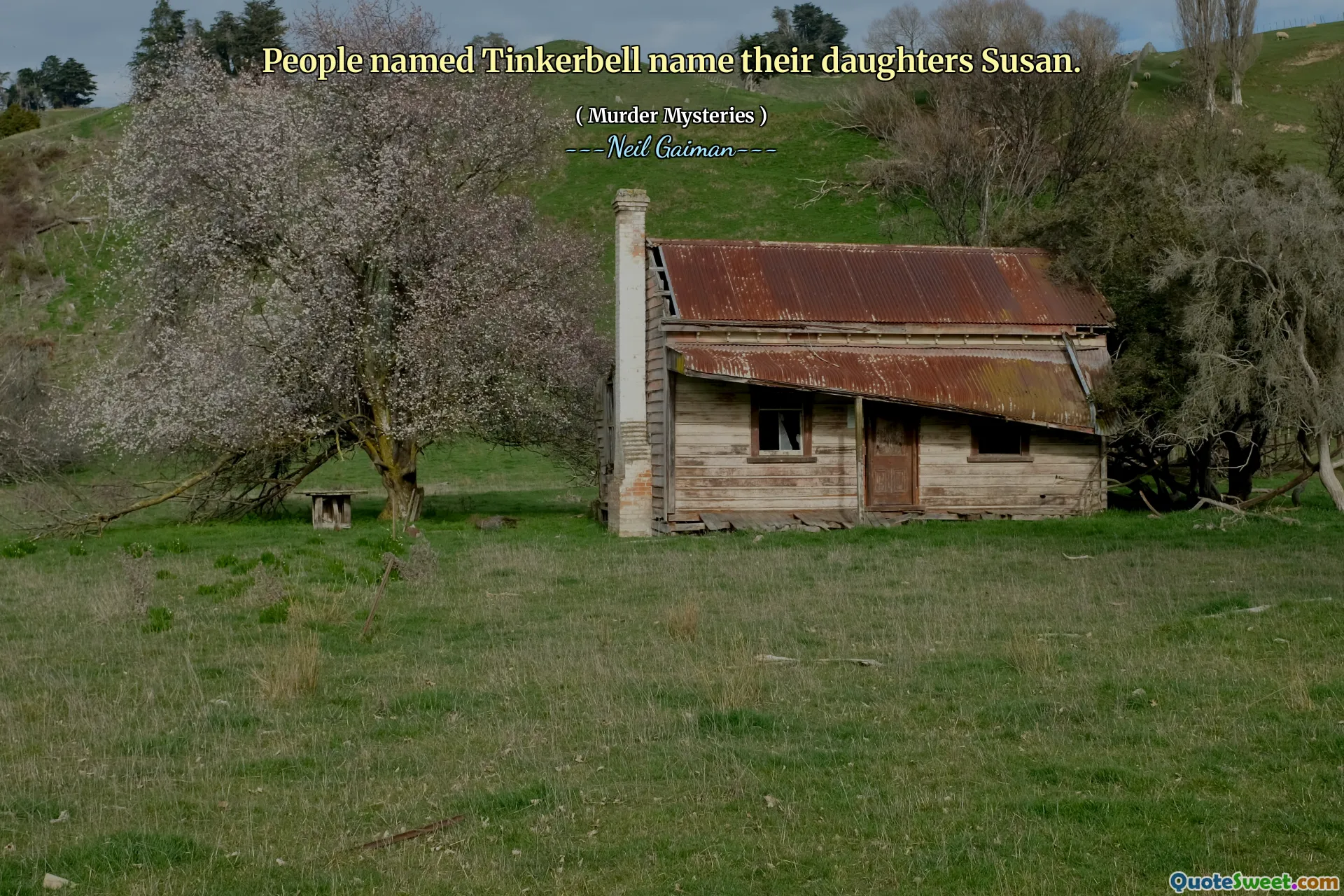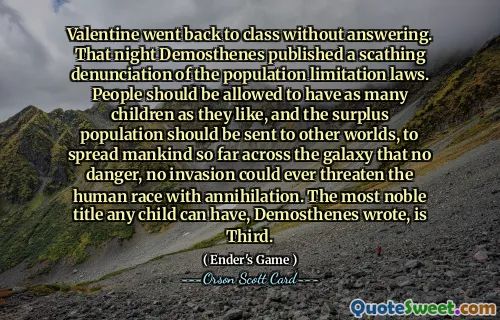
People named Tinkerbell name their daughters Susan.
Neil Gaiman's quote, originating from his work "Murder Mysteries," presents a whimsical yet thought-provoking observation. On the surface, it seems playful, almost absurd—pairing the fanciful name "Tinkerbell" with the much more traditional "Susan." This juxtaposition invites readers to ponder on the nature of identity, heritage, and expectation. Why would someone named after a fictional, ethereal fairy choose such an unassuming, common name for their child? It subtly explores human tendencies to find balance between uniqueness and convention.
This quote might metaphorically touch upon the way individuals carve out their identities through the names they give their children. Names carry meaning, history, and dreams for the future. Perhaps, by choosing "Susan," the bearer of a name as magical as Tinkerbell signals a desire for grounding or perhaps a certain blend of twice removed fantasies—one foot in the realms of the imaginative and the other firmly in the reality of everyday life.
Delving deeper, the quote might also comment on expectations placed by society or by individuals upon themselves or their progeny. Names, after all, are a legacy. If you are unconventional, do you seek for your offspring a conventional life path or the same enchanted eccentricity? Gaiman’s writing often dances between mythic storytelling and modern subtleties, and this quote encapsulates that balance with a touch of humor and curiosity. It ignites questions rather than answers, prompting readers to reflect on identity formation and the complexity of names as symbols.






